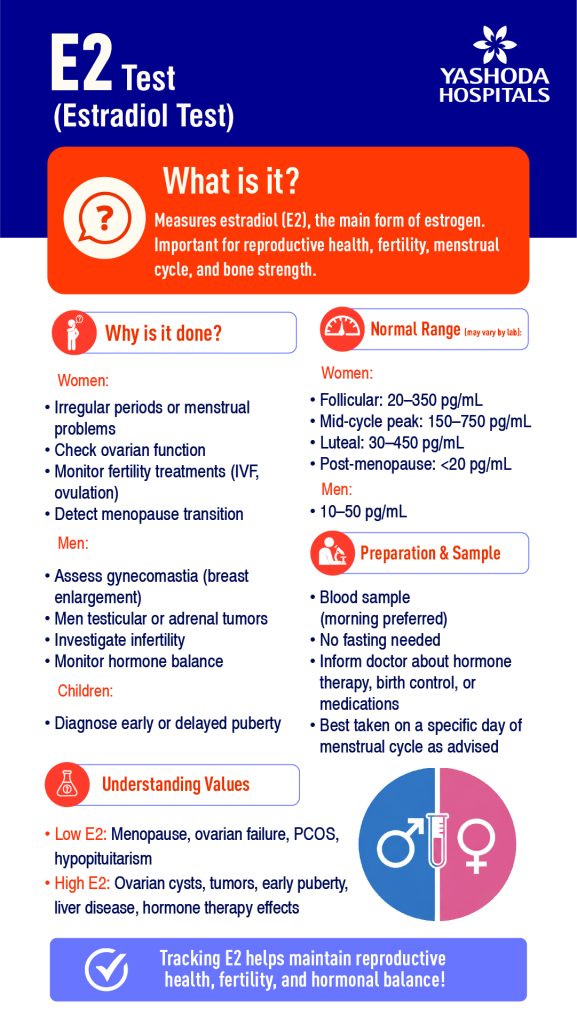What is an estradiol or E2 test?
E2 test Stands for Estradiol Test. It is a blood test used to measure the amount of estradiol (E2) in your blood. Estradiol is a type of estrogen hormone. It plays a vital role in the development of the female reproductive system, including the uterus, fallopian tubes, vagina, and breasts. High levels of E2 were found in women during their reproductive age, and after menopause, the levels of E2 lowers significantly.
Estradiol tests provide valuable information about ovarian function and aid doctors in evaluating menstrual issues, such as abnormal bleeding or missed periods. The test can also be used to assess the health of the testes, ovaries, or adrenal glands.
What is the use of an estradiol test?
Estradiol tests are used to:
- Investigate reasons for early or late puberty in girls and late puberty in boys.
- Monitor treatments for menopause.
- Identify tumors that produce estrogen.
- Diagnose certain birth defects during pregnancy and monitor high-risk pregnancies.
- Diagnose menstrual difficulties and causes of infertility.
- Monitor infertility treatments.
This comprehensive test helps in various reproductive health evaluations and treatments.
Understanding the test results of the estradiol (E2) test.
Test results may vary depending on your age, gender, and the method used for the test.
If your results are lower, it may mean you have ovarian failure, also called early menopause, or polycystic ovarian syndrome (PCOS).
If your results are higher, it may suggest early puberty, a tumor of the ovary or testes, hyperthyroidism, or adrenal glands.





 Appointment
Appointment WhatsApp
WhatsApp Call
Call More
More